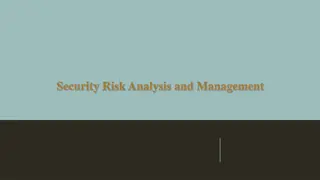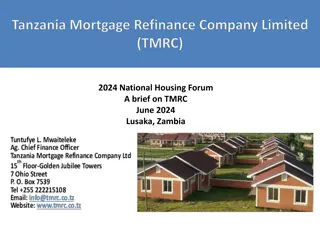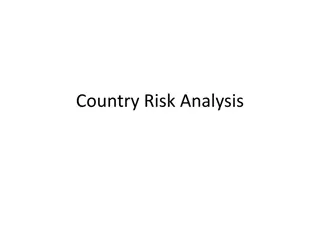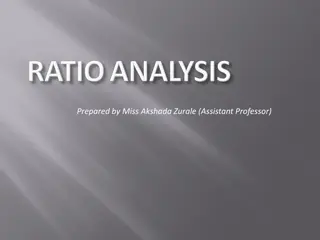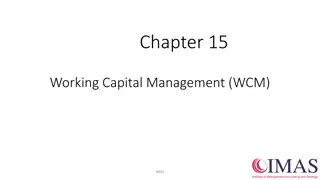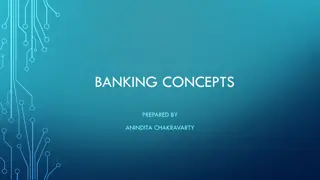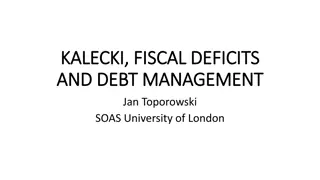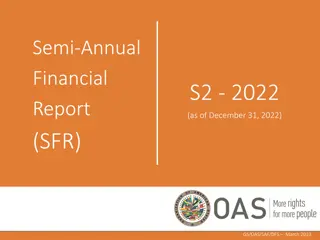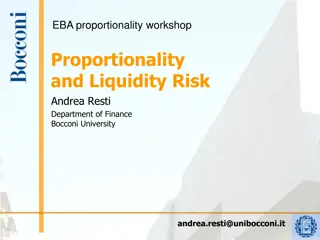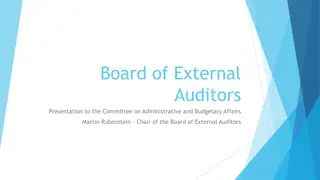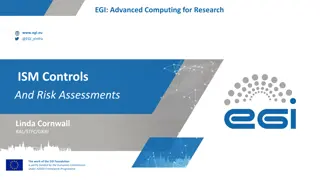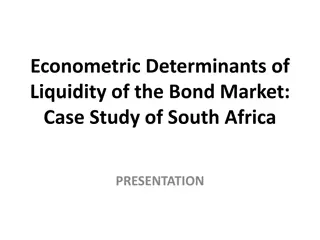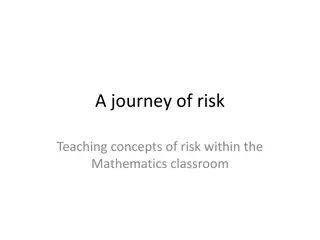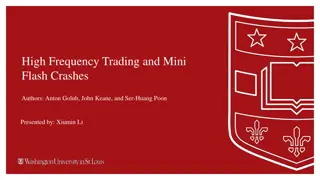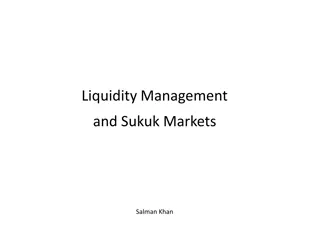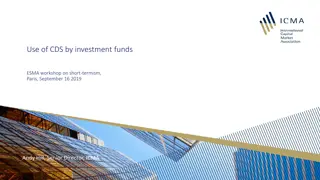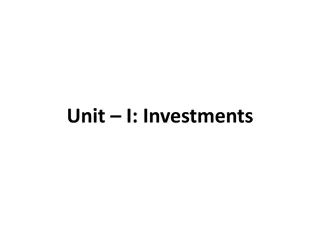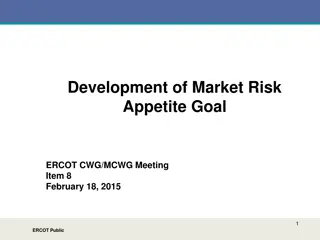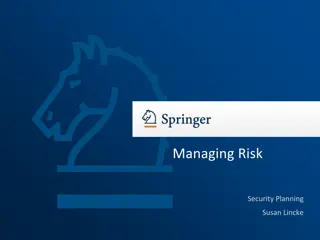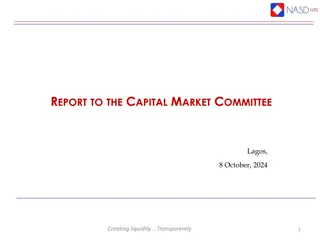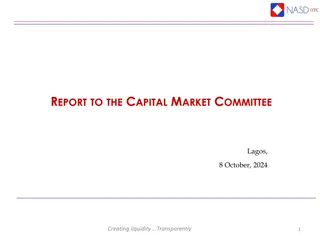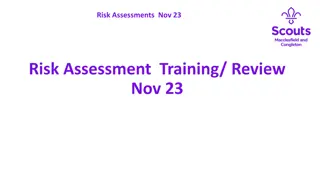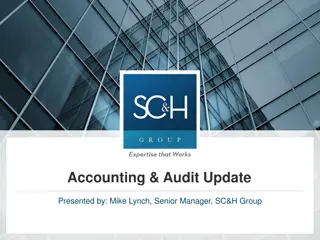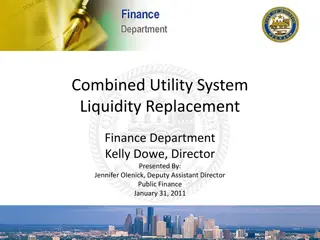Revolutionizing Financial Systems with Aquo Protocol
Aquo aims to integrate global financial systems into a unified protocol, addressing issues like limited liquidity, high costs, and restricted access to diverse assets. By tokenizing Real World Assets and offering innovative solutions, Aquo empowers investors with enhanced liquidity, global access, a
2 views • 10 slides
Comprehensive Overview of Security Risk Analysis and Management
Explore the essential aspects of security risk analysis and management, including risk identification, assessment, and control techniques within an Information Security (InfoSec) context. Learn about the purpose of risk management, steps involved in a risk management plan, asset identification and c
0 views • 22 slides
Understanding Risk Management in Environmental Geography and Disaster Management
Risk management in environmental geography and disaster management involves assessing the potential losses from hazards, evaluating vulnerability and exposure, and implementing strategies to mitigate risks. It includes calculating risk, dealing with risk through acceptance, avoidance, reduction, or
1 views • 10 slides
Understanding Quantitative Credit Control Methods in RBI's Monetary Policy
RBI's monetary policy revolves around maintaining credit quantity in the market through quantitative credit control methods. This includes Bank Rate Policy, Open Market Operations, Cash Reserve Ratio (CRR), and Statutory Liquidity Ratio (SLR). These tools help regulate credit flow, liquidity, and ma
4 views • 8 slides
Introduction to Flood Risk Assessment with HEC-FDA Overview
This presentation delves into flood risk assessment using HEC-FDA software, covering topics such as defining flood risk, components of uncertainty, consequences of flood risk, and methods to assess flood risk including hydrology, hydraulics, geotechnical, and economics. It explores the intersection
6 views • 39 slides
Overview of Tanzania Mortgage Refinance Company Limited (TMRC)
TMRC is a private financial institution in Tanzania that supports banks in mortgage lending by refinancing their portfolios. It operates as a mortgage liquidity facility for long-term mortgage lending activities by Primary Mortgage Lenders. TMRC's model is based on successful liquidity facilities an
0 views • 22 slides
Understanding Country Risk Analysis in International Business
Country risk analysis is crucial for multinational corporations (MNCs) to assess the potential impact of a country's environment on their financial outcomes. It includes evaluations of political and economic risks in foreign operations. Sovereign risk, political risk characteristics, and factors are
1 views • 61 slides
Understanding Ratio Analysis in Financial Statements
Ratio analysis is a crucial process in interpreting financial statements by deriving accounting ratios from the balance sheet and profit and loss account. It involves assessing short-term liquidity, long-term solvency, activity ratios, and profitability ratios. Liquidity ratios like current ratio, q
2 views • 41 slides
Project Risk Management Fundamentals: A Comprehensive Overview
Project risk management involves minimizing potential risks and maximizing opportunities through processes such as risk management planning, risk identification, qualitative and quantitative risk analysis, risk response planning, and risk monitoring and control. Quantitative risk analysis assesses t
0 views • 41 slides
Efficient Working Capital Management in Businesses
Working capital management involves strategically balancing current assets and liabilities to ensure solvency and maximize asset returns. The main goals include optimizing liquidity, profitability, and resource utilization. Liquidity management is crucial for meeting short-term obligations, and sour
0 views • 27 slides
Understanding Banking Concepts and Monetary Policies
Explore key banking concepts such as Currency Deposit Ratio, Reserve Deposit Ratio, Statutory Liquidity Ratio, High-Powered Money, and their significance in regulating the money supply and liquidity in an economy. These concepts shed light on the relationship between currency, deposits, reserves, an
0 views • 14 slides
Principles of Fiscal Deficits and Debt Management According to Kalecki
Economist Kalecki advocated for a permanent regime of fiscal deficits to manage public debt, emphasizing the importance of debt management for liquidity in the financial system. His principles involve splitting the government budget into functional and financial parts, each influencing aggregate dem
0 views • 6 slides
Semi-Annual Financial Report S2 - 2022 Summary
This report provides key financial data for the second half of 2022, including budgetary execution, fund quotas compliance, member states' balances due, liquidity risk assessment, and more. It outlines the overall program budget execution, quota compliance of member states, and fund liquidity status
0 views • 14 slides
Proportionality Principle in Liquidity Risk Management
The concept of proportionality is essential in evaluating measures related to liquidity risk management in the banking sector. The principle emphasizes the necessity for measures to be appropriate, necessary, and not disproportionally disadvantageous. By applying a 3-stage test, institutions can ens
1 views • 10 slides
Board of External Auditors Presentation Highlights
The presentation by Martin Rubenstein, the Chair of the Board of External Auditors, outlines the responsibilities, membership, and mandate of the board in conducting external audits of the financial accounts of the OAS. Key findings and recommendations regarding accounting practices, liquidity issue
0 views • 6 slides
Understanding and Refining Risk in Investment Planning
Investment planning involves understanding liquidity needs, as exemplified by the LTCM case study in 1998. Refining investment style entails assessing risk as uncertainty and aligning it with individual risk appetite and goal timelines. The analogy of driving helps explain different approaches to ha
0 views • 21 slides
Understanding Risk Concepts and Management Strategies in Finance
Explore the essential concepts of risk in finance, such as risk definition, risk profiles, financial exposure, and types of financial risks. Learn about risk vs. reward trade-offs, identifying risk profiles, and tools to control financial risk. Understand the balance between risk and return, and the
0 views • 18 slides
Risk and Return Assessment in Financial Management
This comprehensive presentation explores the intricacies of risk and return assessment in the realm of financial management. Delve into understanding risk concepts, measuring risk and return, major risk categories, and the impact of risk aversion on investment decisions. Gain insights into the manag
0 views • 62 slides
Risk Management and Security Controls in Research Computing
The European Grid Infrastructure (EGI) Foundation conducts risk assessments and implements security controls in collaboration with the EOSC-hub project. The risk assessments involve evaluating threats, determining likelihood and impact, and recommending treatment for high-risk threats. Results from
0 views • 13 slides
Risk Management & MPTF Portfolio Analysis at Programme Level for UN Somalia
This session delves into the world of risk management and portfolio analysis at the programme/project level, specifically focusing on the Risk Management Unit of the United Nations Somalia. It covers enterprise risk management standards, planned risk management actions, the role of RMU, joint risk m
0 views • 30 slides
Alcohol and Cancer Risk: Understanding the Links
Alcohol consumption is linked to an increased risk of various cancers, including mouth, throat, esophagus, breast, liver, and colorectal cancers. Factors such as ethanol, acetaldehyde, nutrient absorption, estrogen levels, and liver cirrhosis play a role in this risk. Even light drinking can elevate
0 views • 17 slides
Determinants of Liquidity in the South African Bond Market
The presentation explores the determinants of liquidity in the South African bond market, emphasizing its importance for economic stability and growth. It discusses the significance of market liquidity, impacts of illiquidity, and compares the efficiency of the South African bond market with others
0 views • 24 slides
Theories of Interest in Microeconomics II
Explore various theories of interest in economics, including the Classical Theory, Liquidity Preference Theory by Keynes, Productivity Theory, Abstinence Theory, Time-Preference Theory, Fisher's Time Preference Theory, and the Loanable Fund Theory. These theories offer different perspectives on the
0 views • 6 slides
Understanding Risk Concepts in the Mathematics Classroom
Risk is a concept integral to decision-making in various aspects of life. This resource explores how risk is defined in the real world, its relevance in the classroom, and strategies for teaching risk literacy to students. It delves into the multiple definitions of risk, risk analysis, and the emoti
0 views • 62 slides
Understanding High Frequency Trading and Mini Flash Crashes
This presentation delves into the world of high frequency trading and mini flash crashes, examining the causes, characteristics, and impacts of these phenomena. Authors Anton Golub, John Keane, and Ser-Huang Poon provide insights and analyses based on extensive research, shedding light on topics suc
0 views • 23 slides
Understanding Liquidity Management and Sukuk Markets
Comprehensive overview of liquidity management (LM), focusing on its importance, obstacles, and current tools like Sukuk. Explore how Sukuk can enhance liquidity management, especially in financial institutions, by matching maturities, maintaining sufficient funds, and dealing with short-term pressu
0 views • 25 slides
Use of Credit Default Swaps (CDS) by Investment Funds
Presentation at the ESMA workshop discussed the potential benefits and costs of using Credit Default Swaps (CDS) by investment funds. It highlighted the various uses of CDS, including risk management, alternative liquidity, and investment strategies. Evidence shows that a small percentage of UCITS f
0 views • 6 slides
Understanding Investments: Objectives, Decision Making, and Goals
Investments involve committing money for future benefits, balancing risk and return. The nature, scope, and objectives of investments guide decision-making processes, considering factors like time, risk, and diversification. Investment goals range from short-term to long-term priorities, aiming to i
0 views • 35 slides
Understanding Organizational Risk Appetite and Tolerance
Explore the development of market risk appetite goals and how to define and establish organizational risk tolerance. Learn about the Classic Simplified View of Risk Tolerance and different methods to determine risk appetite. Discover the importance of assessing market risk impact and aligning risk t
0 views • 8 slides
Developing a Risk Appetite Culture: Importance and Framework
Risk management plays a critical role in the success of corporations, with strategy and risk being intertwined. This presentation delves into definitions of key terms such as risk appetite, the Risk Appetite Cycle, characteristics of a well-defined risk appetite, and the importance of expressing ris
0 views • 31 slides
Understanding the Call Money Market: Features, Participants, Advantages, and Drawbacks
The call money market is a short-term finance market where loans are provided against a call made by the borrower, often lasting from one day to fourteen days. Major participants include commercial banks, stock brokers, and the Discount and Finance House of India. This market offers high liquidity,
0 views • 5 slides
Security Planning and Risk Management Overview
This content provides an in-depth exploration of managing risk, security planning, and risk appetite in the context of cybersecurity. It covers essential concepts such as risk management process, threat types, risk analysis strategies, vulnerability assessment, and risk mitigation techniques. The ma
0 views • 73 slides
Risk Factors Analysis: Identifying At-Risk Students Before They Reach Campus
Risk Factors Analysis aims to identify students at risk of attrition before they even arrive on campus by evaluating academic, financial, minority, and first-generation factors. The method involves choosing specific risk factors, tracking historical prevalence, calculating relative risk, and predict
0 views • 15 slides
Enhancing Liquidity in the Capital Market: A Comprehensive Report
This report to the Capital Market Committee covers data and insights on participant growth, market index, activities, traders, institutions, and other market developments as of October 8, 2024. It discusses the progress in creating transparency and liquidity in the market, including upcoming events
0 views • 10 slides
Achieving Liquidity Through Transparent Market Operations in Lagos - Capital Market Committee Report
This report dated 8th October 2024 sheds light on the efforts and progress made in creating liquidity transparently in the market. It covers key aspects such as admitted securities, share capital, dematerialization, trade volume, market leaders, and initiatives for market expansion and enhancement.
0 views • 11 slides
Market Report: Creating Liquidity Transparently in Lagos - October 2024
In the CEO Interactive Session and market reports presented, key metrics like total share capital, volume dematerialized, and operating brokers/firms were analyzed. Trade values, quarterly volumes, and market leaders were also highlighted, providing insights into the market's liquidity. The data sho
0 views • 27 slides
Impact of Political Stability on Equity Trading Costs of Cross-Listed Firms
The research explores the relationship between political stability and equity trading costs of cross-listed firms, highlighting the impact of political institutions, liquidity, and investor protection. It delves into the importance of factors like quality of political institutions, transparency, and
0 views • 24 slides
Comprehensive Risk Assessment Training Overview
In this risk assessment training session held on November 23, participants reviewed the process of writing and reviewing risk assessments to enhance the quality of assessments for safer scouting experiences. The training aimed to improve leaders' skills and confidence in risk assessment practices wh
0 views • 37 slides
Financial Statements Project Update on Not-for-Profit Entities
The Financial Statements Project update focuses on improving the presentation of net asset classes and providing better information on liquidity, performance, and cash flows for not-for-profit entities. Decisions made relate to liquidity presentation, operating measures, net assets, cash flows state
0 views • 27 slides
Combined Utility System Liquidity Replacement Finance Summary
Presentation of the Combined Utility System Liquidity Replacement Finance Department's summary for liquidity types, series, banks, and financing programs. Details include CP programs supporting CUS's CIP, VRDBs series, and liquidity agreements with highly rated banks. Recommendations for financing m
0 views • 4 slides

